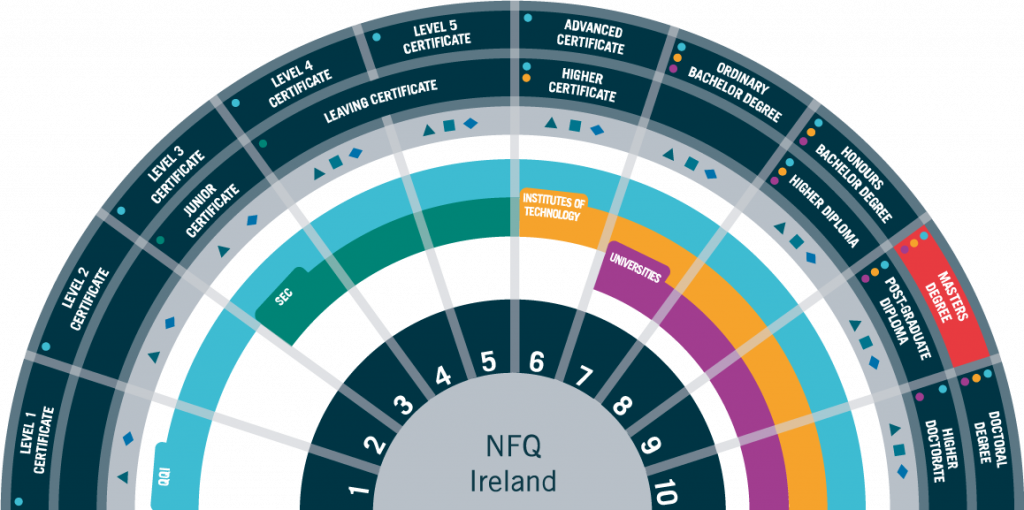The objective of the Follow App project is to set-up and test a graduate tracking method supported by digital tools designed to track employment and career progression of apprentices in DUAL VET programmes, addressed to VET teachers, counsellors, in-company trainers and learners, improving the responsiveness of VET to the changing demands in the labour market and strengthening the Quality Assurance in VET.
As work is ongoing on the project, INQS has recently been investigating the main features of the National Qualifications Framework (NQF) in Ireland
The Irish National Framework of Qualifications (NFQ) was developed as part of the Qualifications (Education and Training) Act 1999. The Irish NFQ was presented in 2003 as part of the “Policies and criteria for the establishment of the National Framework of Qualifications” report. As identified on the NFQ website, the Irish NFQ is “a framework through which all learning achievements may be measured and related to each other in a coherent way. The many different types and sizes of qualifications included in the NFQ, are organised based on their level of knowledge, skill and competence.”

The “Policies and criteria for the establishment of the National Framework of Qualifications” report also identified the use of Knowledge, skill and competence as the outcomes of learning for the framework:
- Knowledge – This is the form of learning outcome commonly identified with declarative knowledge. The main strands of knowledge as a learning outcome are divided into sub-strands of “breadth” and “kind”.
- Know-how and skill – This is the goal-directed performance of a task in interaction with the environment. The exercise of a skill is the performance of a task that in some way responds to or manipulates the physical, informational or social environment of the person. The main strands of know-how and skill as a learning outcome are divided into sub-strands of “range” and “selectivity”.
- Competence – This is the practical application of knowledge and/or skill requires learning beyond their primary acquisition. The unique characteristic of competence is the effective and creative demonstration and deployment of knowledge and skill in human situations. The main strands of competence as a learning outcome are divided into sub-strands of “context”, “role”, “learning to learn” and ”insight”.
For more on the Follow App project, please see the Facebook page at https://www.facebook.com/FollowApp.Project/